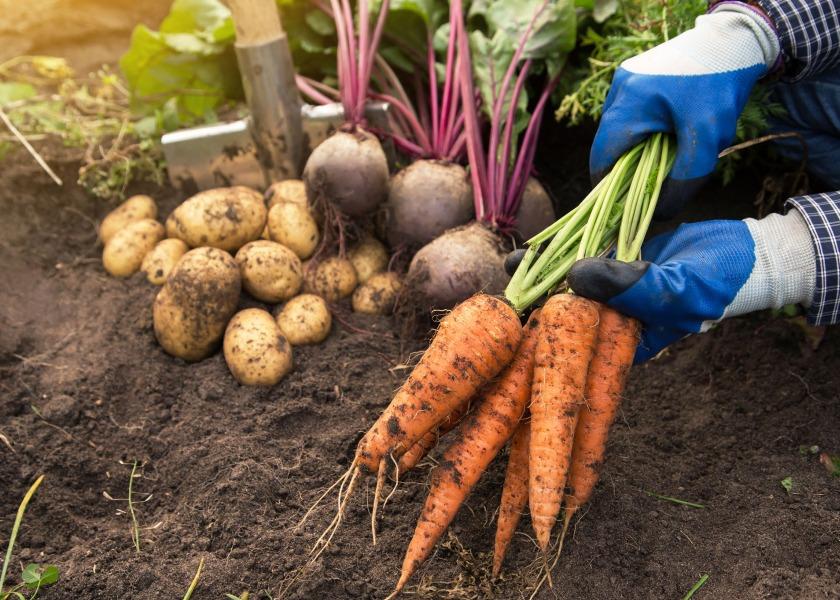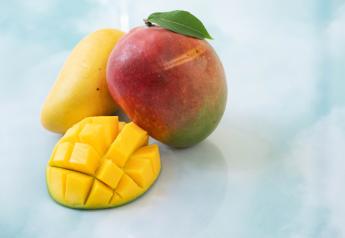USDA’s new organic rule tackles fraud

The Strengthening Organic Enforcement Final Rule is live today on the Federal Register, filed unofficially by the USDA and the National Organic Program, with official publication scheduled for Jan. 19.
“This has been a long time coming,” U.S. Rep. Chellie Pingree of Maine said on a call with reporters. “It’s been first major attempt to update the regulations and make sure that we’re strengthening [organic] integrity since the original act in 1990.”
The new 280-page Final Rule addresses long-awaited updates sought after by farmers and organic advocates alike to bolster the credibility of the organic seal and safeguard organic integrity across global supply chains.
“[Consumers] want transparency in the system, they want integrity in the system,” Pingree said. “And we've learned during the pandemic, the challenges that we faced with our supply chain issues — which were widespread throughout agriculture — were exacerbated in organic agriculture. It allowed for even more opportunities for fraudulent products to come through the market because of the desperate need for products everywhere. That makes this [Final Rule] even more important than ever.”
Early reactions to the Final Rule
“This rule really shows that, unlike other eco-labels like ‘natural’ or ‘regenerative', the USDA Organic label is backed by third-party inspection, federal enforcement and provides traceability from the farm to the consumer,” Tom Chapman, CEO of the Organic Trade Association, said in a statement. “Unlike these uncertified claims, there are consequences to cheating in organic and it just got that much harder. Consumers can be confident that we will make sure products sold as organic are organic.”
What’s more, according to Chapman, the SOE Final Rule “closes gaps in current organic regulations and builds consistent certification practices to prevent fraud and improve the transparency and traceability of organic products.”
Fraud in the organic supply chain — wherever it occurs — harms the entire sector and shakes consumer trust in organic.
“We all know the certification standards are so high in organics, we must make sure that the integrity is high. ... Consumers need to know that if they’re going to put the money down, that they’re actually going to get the product that they’re intending to get,” Pingree said. “It’s not an easy standard to meet. It shouldn’t be and we should keep it that way.”
Kate Mendenhall, an Iowa organic farmer and executive director of Organic Farmers Association, agrees that the Final Rule is good for producers and consumers alike.
“U.S. organic farmers and consumers will both benefit from a quick and strong implementation of the SOE Rule. We are glad to see it published before the beginning of writing the next farm bill,” Mendenhall said in a news release. “This is a huge win for organic farmers.”
Related news: Strengthening Organic Enforcement Final Rule expected to publish Jan. 18
Pryor Garnett, Organic Farmers Association Policy Committee chair and owner of Garnett’s Red Prairie Farm in Oregon, agrees that this rule will benefit the entire organic sector.
"Ensuring that all handlers and importers are held to the same enforcement standards as organic farmers is incredibly important,” Garnet said in the release. “The SOE rule was in process for far too long, and we thank the USDA for bringing it across the finish line.”
Key takeaways
The breadth and the depth of the new rule is immense. The 282-page rule addresses 17 different topics. In spirit and content, the final rule is similar to the rule proposed in 2020 and takes into consideration over 1,500 comments submitted in response to the proposed rule.
At the heart of the new rule is ensuring robust enforcement for organic certification across the supply chain. Top updates to the USDA organic regulations outlined in the Final Rule include:
1. Requires certifications from more critical links in the supply chain.
“Number one, the rule reduces the types of uncertified entities so more types of operations will now need to be certified,” Jennifer Tucker, deputy administrator of the USDA’s NOP said in a call with reporters. “Those folks will now need to be certified and that will take huge steps forward for traceability and supply chain protection.”
According to Chapman at the OTA, the Final Rule clarifies that traders, importers, warehouses for unpacked products, distributors, brokers or anyone who handles open organic products outside of onsite at retail needs to be certified organic.
Organic certification exemptions have been narrowed to only include:
-
Retailers.
-
Those storing or selling to retail products in sealed, tamper-evident packaging.
-
Transport and customs brokers.
2. NOP Import Certificates expanded to include all organic imports.
All imported organic products will need to be documented via an import certificate issued by the exporter’s certifier. This certificate will be entered into U.S. Custom’s ACE’s system and the NOP Organic Integrity Database.
According to Chapman, this will make tracing, monitoring, auditing and enforcing the organic regulations in international trade more efficient and effective.
3. Enhanced supply chain traceability and organic fraud prevention measures.
The Final Rule will require increased traceability and record-keeping practices at each certified operation along the supply chain. This will increase due diligence and make it more challenging for fraud to go undetected.
Next steps towards compliance
“It’s a 14-month implementation period that includes two months until the rule is fully effective and then a 12 month implementation period after that,” Tucker said. “So, a total of 14 months from the official publication date, which is tomorrow.”
In preparation for a March 2024 implementation date, Chapman confirmed in a statement that the organization is focusing on providing necessary support and resources needed members to ensure successful compliance with this significant new rule.
“My biggest suggestion to any stakeholder that may be impacted or thinks that they may be impacted is to read the rule," Jonathan Veley, director of AMS trade systems at the USDA told The Packer on Jan. 13. “I encourage them to read it cover to cover. I think that will alleviate so many questions.”







